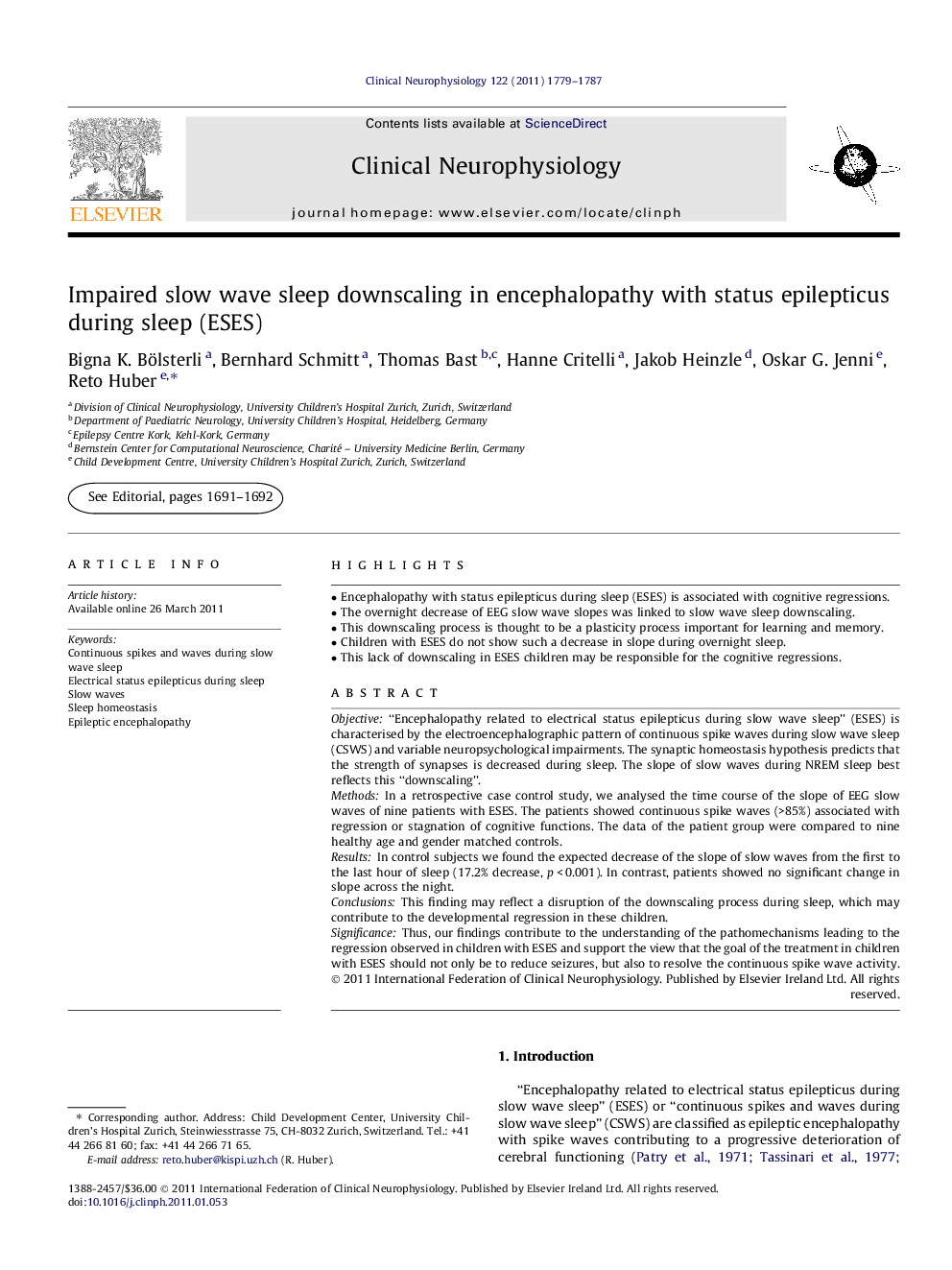| Article ID | Journal | Published Year | Pages | File Type |
|---|---|---|---|---|
| 3045785 | Clinical Neurophysiology | 2011 | 9 Pages |
Objective“Encephalopathy related to electrical status epilepticus during slow wave sleep” (ESES) is characterised by the electroencephalographic pattern of continuous spike waves during slow wave sleep (CSWS) and variable neuropsychological impairments. The synaptic homeostasis hypothesis predicts that the strength of synapses is decreased during sleep. The slope of slow waves during NREM sleep best reflects this “downscaling”.MethodsIn a retrospective case control study, we analysed the time course of the slope of EEG slow waves of nine patients with ESES. The patients showed continuous spike waves (>85%) associated with regression or stagnation of cognitive functions. The data of the patient group were compared to nine healthy age and gender matched controls.ResultsIn control subjects we found the expected decrease of the slope of slow waves from the first to the last hour of sleep (17.2% decrease, p < 0.001). In contrast, patients showed no significant change in slope across the night.ConclusionsThis finding may reflect a disruption of the downscaling process during sleep, which may contribute to the developmental regression in these children.SignificanceThus, our findings contribute to the understanding of the pathomechanisms leading to the regression observed in children with ESES and support the view that the goal of the treatment in children with ESES should not only be to reduce seizures, but also to resolve the continuous spike wave activity.
► Encephalopathy with status epilepticus during sleep (ESES) is associated with cognitive regressions. ► The overnight decrease of EEG slow wave slopes was linked to slow wave sleep downscaling. ► This downscaling process is thought to be a plasticity process important for learning and memory. ► Children with ESES do not show such a decrease in slope during overnight sleep. ► This lack of downscaling in ESES children may be responsible for the cognitive regressions.
